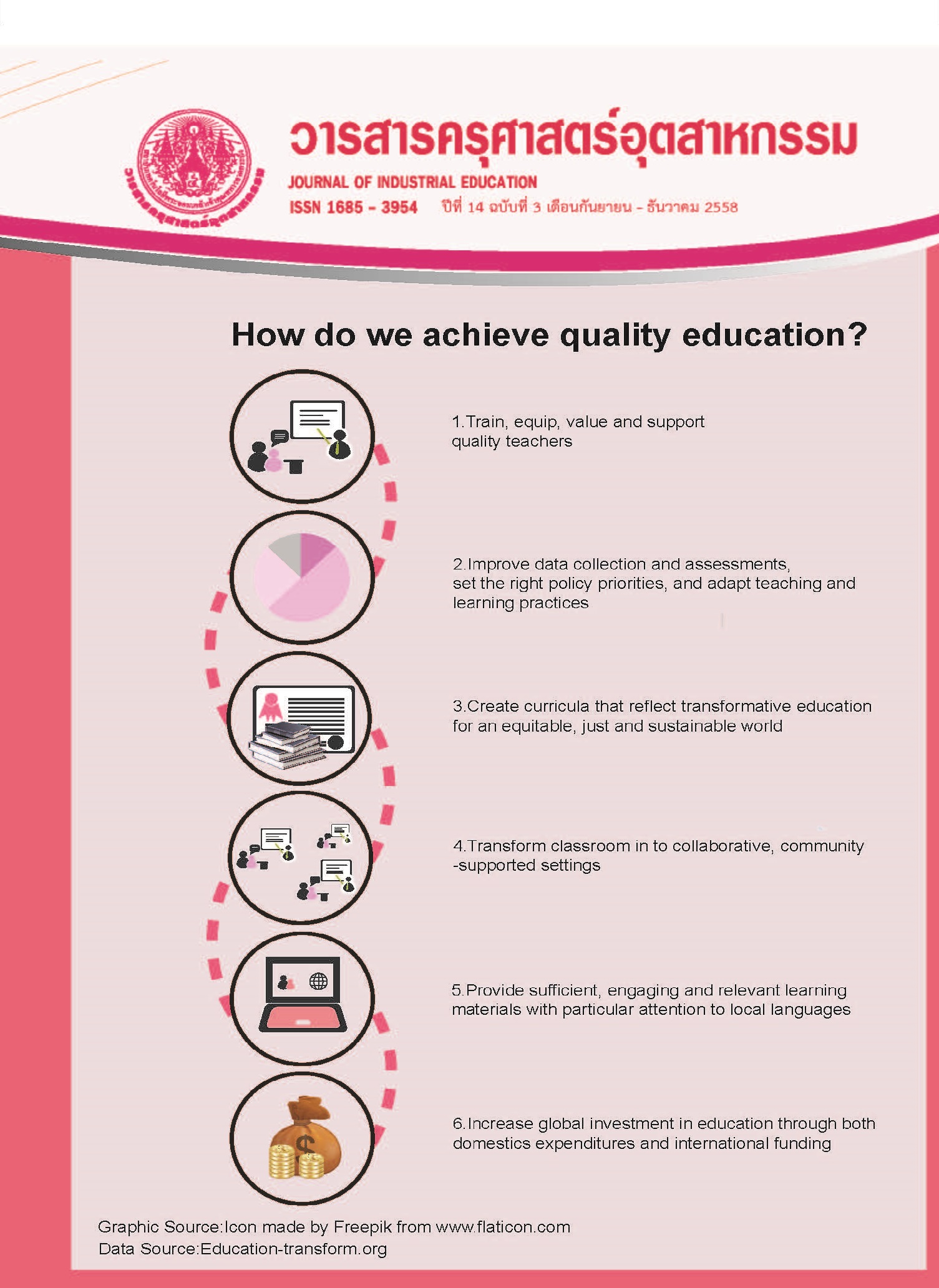Happiness At Work of Employee In Glaxosmithkline (Thailand)
Main Article Content
Abstract
The objectives of this study were to investigate levels of workplace happiness among employees at GlaxoSmithKline (Thailand) Limited and to compare levels of workplace happiness among the employees with different gender, age, education, work experience and salary. The samples of the study were 187 employees at GlaxoSmithKline (Thailand) Limited selected by simple random sampling method. The data were collected through a questionnaire and reliability is, arithmetic mean, and standard deviation via statistical program. Hypothesis testing was conducted using t-test and one-way ANOVA. The findings indicated that.
1. Workplace happiness in satisfaction enthusiasm and success of the employees at GlaxoSmithKline (Thailand) Limited was at a high level
2. The employees with different gender, ages, and salaries showed significantly different levels of workplace happiness towards success (0.05).
Article Details
"The opinions and contents including the words in papers are responsibility by the authors."
"ข้อคิดเห็น เนื้อหา รวมทั้งการใช้ภาษาในบทความถือเป็นความรับผิดชอบของผู้เขียน"
References
[2] ทิพาวดี เมฆสวรรค์. 2543. การบริหารมุ่งผลสัมฤทธิ์. กรุงเทพฯ: อรุณการพิมพ์.
[3] แผนงานสุขภาวะองค์การเอกชน. 2552.ร้อยความคิดสร้างสุขในองค์กร.กรุงเทพฯ: สำนักงานกองทุนสนับสนุนการสร้างเสริมสุขภาพ.
[4] Warr. P. 1990. The measurement of well-being and other aspect of mental health. Journal Of Occupational Psychology, 63,p.193-210.
[5] Warr. P. 2007. Work, Happiness and Unhappiness. New Jersey: Erlbaum Associates.
[6] Harrell. 2014. Sex differences in outcomes and harasser characteristics. Journal of Occupational Health Psychology, 1(9), p.133-142.
[7] Diener, E. 2000. “Subjective well-being:The science of happiness and proposal for a National index.” The American Psychologist Association, 1(2), p.34-43.
[8] พันทวี บุญมาตย์. 2553. ปัจจัยที่ส่งผลต่อความพึงพอใจในการปฏิบัติงานของพนักงานระดับวิศวกรในอุตสาหกรรมฮาร์ดดิสก์ไดร์ฟในประเทศไทย. วารสารครุศาสตร์อุตสาหกรรม,10(2), น.181-189.
[9] นันทรัตน์ อุ่ยประเสริฐ. 2552.ความสุขในการทำงานของพนักงานบริษัทเฟิสท์ดรัก จำกัด จังหวัดเชียงใหม่.การค้นคว้าอิสระบริหารธุรกิจมหาบัณฑิตมหาวิทยาลัยเชียงใหม่.
[10] Gavin, J.H and Mason, R.O. 2004.The Virtuous organization: The value of Happiness in the workplace.Organization Dynamics, 33(1), p.379-392.
[11] Herzberg. F. 1959. The Motivation to Work. New York: John Wiley and Sons.

